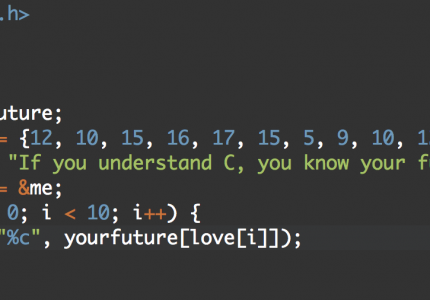i haven’t written a book report since 8th or 9th grade, but for some reason i’m at least compelled to write a few lines about a book i just finishd reading: The Stranger by Albert Camus. the book seems to deal with a man’s complete loss of touch with human emotion. it almost seems a comment about the Socialism in France, basically asserting that “all work and no play makes Jack a heartless shell of a man” (or a dull boy, if you prefer the original).
the title clearly refers to man’s alienation from society, and from feeling sympathy and empathy in what is perceived to be a normal way. a (perhaps subconscious, yet still tragic) dulling of emotions to render one able to deal with life’s many trials. i’ve felt this same detached feeling myself over the past few years … and now, in my adult years, the stoicism i was impressed with and embraced in high school is in forever conflict with the happy-go-lucky personality i see as successful.
it’s like a fight in my head between John Wayne and a stand-up comic like Dave Chappelle, with my desire lying in some balance between the two. i want to be happy and have a lot of friends, while at the same time need to be sincere and overly submissive (avoid “fakeness”, as someone once put it).
the story begins with the main character, Merseult, stating indifferently that his mother died, “today. Or yesterday maybe, I don’t know”.
my gut reaction when i read that was shock. i’ve met people with terrible relationships to their parents, but how could you not remember when your mother died, especially when it was within the past week?? strange … but then again, the book is called The Stranger.
it goes on to show our main character sidestep love, asserting that though his lover Marie likes him enough to want to marry him, he feels nothing for her. he does, however, hold an indifference to life so as to agree.
Merseult also seems to have a lack of understanding for consequences of his actions, stupidly agreeing to a neighbor’s request to write a letter for him. the same neighbor, now his ‘friend’ after having written the letter, is believed by the rest of the neighborhood to be a street pimp (“procurer”, as they call him). i say ‘friend’ in quotes because i fail to see how Merseult could understand having anyone as even a friend that does not serve a certain purpose to his life. we do see a bit of emotion come from Merseult during the trial later in the story (from Celeste, a shopkeeper he knew), but even that relationship seems to have been born out of sheer pragmatism. he saw the man often when he would visit his shop to eat, and for this reason they considered each other ‘friends’.
so first off, Merseult doesn’t seem to care who he associates with. second of all, doesn’t seem to understand the implications of his actions when he writes the letter to his ‘friend’s girlfriend’, who is never actually implied as a prostitute, but i suspect probably was. Raymond (his ‘friend’) ends up exacting his revenge on the ‘girlfriend’ who cheated on him, beating her up and involving Merseult when the police arrive.
Raymond is another interesting character in the story. He seems to be very different from Merseult, a criminal, and the polar extreme of Salamano, Merseult’s other neighbor. unlike Merseult, however, Raymond has a sadistic side, and puts the weapon in Merseult’s hand that will eventually lead to our protagonist’s own death.
the letter and subsequent beating end up coming back full force on Raymond, when the brother of the girl beat and two of his friends arrive to seek revenge against him. Merseult and another is with Raymond, and the fight ends up with the group of “Arabs” running away.
later, Merseult and the entourage are walking down the beach, approaching the Arabs from earlier. Merseult tells Raymond to hand him the gun, and tells him he will only use it if the other of the two Arabs jumps in or if one draws a knife. in a fit of confusion, and the Arab raising his knife at Merseult, his “whole being tensed and [he] squeezed [his] hand around the revolver.” Then,
“The trigger gave; I felt the smooth underside of the butt; and there, in that noise, sharp and deafening at the same time, is where it all started. I shook off the sweat and sun. I knew that I had shattered the harmony of the day, the exceptional silence of a beach where I’d been happy. Then I fired four more times at the motionless body where the bullets lodged without leaving a trace. And it was like knocking four quick times on the door of unhappiness.”
why Merseult shot the gun four more times into a man dying is the subject of part two. the trial, just as Merseult states, is a boring read. what is interesting is that Merseult confused and seemingly disinterested throughout. his lawyer assures him he will probably just get off with a few years in prison, maybe two of hard labor.
Merseult is completely detached from the hearing, until the sentencing:
“I didn’t look in Marie’s direction. I didn’t have time to, because the presiding judge told me in bizarre language that I was to have my head cut off in a public square in the name of the French people.”
the final major part of the story deals with Merseult’s internal conflict with the certainty of his sentence, and his eventual meeting with the Chaplain. he had refused the meetings, until one day the Chaplain comes in a sits in his cell with him. he tries and tries to get Merseult to realize a belief in God, but he sternly refuses. it seems this is Merseult’s only conviction in life is his disbelief in God and knowing the fact that what does not interest him he knows nothing about. “… I may not have been sure about what really did interest me, but I was absolutely sure about what didn’t.”
the Chaplain remains adamant, and in a final fit of rage, Merseult beings screaming at him, asserting his view of the world:
Throughout the whole absurd life I’ve lived, a dark wind had been rising toward me from somewhere deep in my future, across years that were still to come, and as it passed, this wind leveled whatever was offered to me at the time, in years no more real than the ones I was living. What did other people’s deaths or a mother’s love matter to me; what did his God or the lives people choose or the fate they think they elect matter to me when we’re all elected by the same fate …
In the end this rage, this facing of death seemed to have calmed Merseult down, and the final line in the book goes as such:
… I felt that I had been happy and that I was happy again. For everything to be consummated, for me to feel less alone, I had only to wish that there be a large crowd of spectators the day of my execution and that they greet me with cries of hate
.
a very interesting final line, and worthy of analysis but i’ve lost interest in writing this. and i feel a bit like Merseult every day. i’m almost positive i’ll never have to face what he did, though. maybe i’m not so far gone yet …




wilbur smith
Dark gray text on a black background is a fantastic choice of color schemes. I wonder why other sites don’t adopt it. Probably because they are not masochistic enough.
matt
yes, masochism is what i strive for.
matt
at first i thought sadistic would be a better term, but looked up masochism to make sure: 2 : pleasure in being abused or dominated : a taste for suffering. guess that works.
anyway, i’ve changed the text color to something more readable for my one or two readers. lol
it’s actually something i’ve been meaning to do for a while …